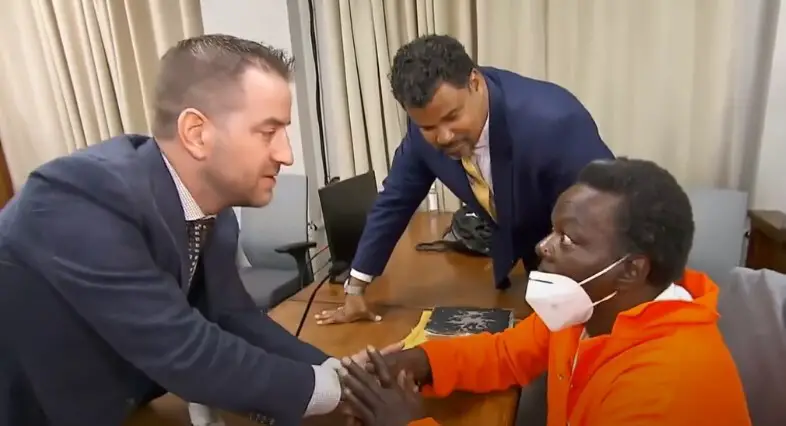Vincent Simmons, a man who spent an astonishing 44 years behind bars for a crime he always denied committing, was finally released from prison just days before his 70th birthday. His conviction for the attempted aggravated rape of twin sisters Karen and Sharon Sanders in 1977 was overturned in a turn of events that reads like a plot from a legal thriller. The sisters, who were 14 at the time, accused Simmons, then 25, of a heinous crime after a seemingly innocent request for a ride at a gas station led to a nightmare scenario. Simmons, however, maintained his innocence throughout his incarceration.
The case against Simmons began to unravel when, in 1993, he obtained a copy of the prosecution’s file, revealing evidence that had not been presented at his trial. This included a doctor’s report indicating no signs of sexual assault and a lineup photo showing Simmons, notably, as the only participant in handcuffs. Despite these discrepancies, it took nearly three decades more for the wheels of justice to turn in Simmons’ favor.

The twist in Simmons’ story came when New York City attorney Justin Bonus and podcast host Jason Flom took interest in his case, prompted by a documentary that featured Simmons. They argued that the lack of physical evidence linking Simmons to the crime and inconsistencies in the accusers’ stories warranted a fresh look at the case. Their efforts eventually led to a new hearing where a judge vacated Simmons’ conviction, citing a fair trial had been impossible due to the withheld evidence.
Simmons’ release was not just a personal victory; it cast a spotlight on the broader issues of wrongful convictions, the importance of access to all evidence for the accused, and the long, difficult road to justice. Despite the years lost and the pain endured, Simmons expressed forgiveness towards the Sanders twins, emphasizing his focus on helping others still behind bars and underscoring his resilience and compassion in the face of a grave injustice.
His story raises critical questions about the criminal justice system’s failures and the human cost of wrongful convictions. It also highlights the power of persistence, advocacy, and the never-ending quest for truth and justice in a system fraught with imperfections.




